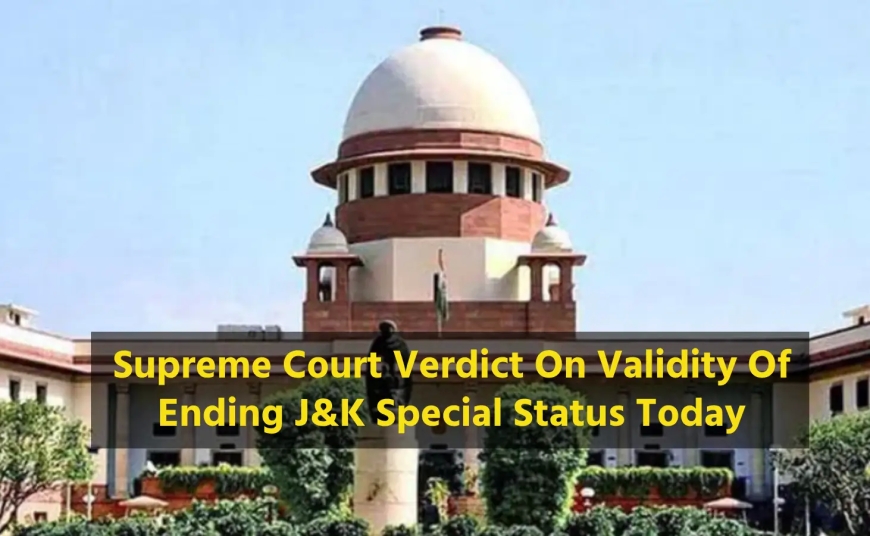Supreme Court Set to Deliver Verdict on the Validity of Ending J&K Special Status Today
The legality of the Centre's decision to revoke Article 370, which granted Jammu and Kashmir special status and resulted in the division of the state into two Union Territories, is under scrutiny. The Supreme Court is anticipated to make a decision on this constitutional matter today.

New Delhi: The Supreme Court is poised to deliver a crucial verdict today on the constitutional validity of the Centre's decision to abrogate Article 370, stripping Jammu and Kashmir of its special status and reorganizing it into two Union Territories. Here are the key points surrounding this significant development:
-
Petitions Challenging Centre's Move
The verdict, expected from a five-judge Constitution bench led by Chief Justice of India DY Chandrachud, follows a series of petitions challenging the Centre's move made four years ago. -
Contested Scrapping of Article 370
Petitioners argue that Article 370 cannot be unilaterally revoked by the Centre, emphasizing that the powers of the Constituent Assembly were vested in the J&K legislature after its dissolution in 1957. -
Questions on Revocation Process
The Supreme Court has raised questions about the revocation process of Article 370, asking who can recommend its revocation and how the article attained permanence after the dissolution of the Constituent Assembly. -
Centre's Legal Framework Defence
The Centre defends its actions, asserting that decisions were made within the legal framework. It contends that mainstreaming Jammu and Kashmir has reduced terrorism and fostered a more equitable playing field. -
Development Track
The government argues that over the past four years, the reorganization has expedited the region's development, putting it on a fast-track trajectory. -
Deprivation of Fundamental Rights
The Centre maintains that Article 370 deprived J&K residents of fundamental rights, including the right to education, as Constitutional rights applicable to all Indians did not automatically extend to them without approval from the state legislature. -
Scrapping of Article 35A
Article 35A, scrapped alongside Article 370, reserved special privileges for J&K residents, limiting rights for people from other parts of the country regarding jobs, land ownership, and settlement in the region. -
Security Measures
Enhanced security measures are in place in the Kashmir Valley in anticipation of the verdict. The BJP urges respect for the Supreme Court's decision. -
Political Responses
Opposition leaders, including Omar Abdullah and Mehbooba Mufti, express their commitment to maintaining peace and hope for a verdict in favour of the people. -
Historical Context
Article 370 was revoked, and Jammu and Kashmir was reorganized in August 2019, over a year after the collapse of the PDP-BJP alliance government, during a period of President's Rule in the region.
The Supreme Court has issued its verdict on the constitutional validity of the Centre's move to revoke Jammu and Kashmir's special status by scrapping Article 370. The ruling, delivered by a five-judge Constitution bench led by Chief Justice DY Chandrachud, addresses critical legal questions that have been the subject of intense debate.
What's Your Reaction?
























































